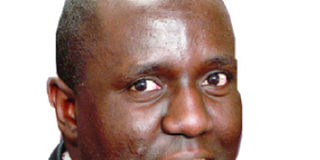Resolving Kagezi murder: Major breakthrough as killings increase

What you need to know:
Shocking murders. Kagezi’s murder was shocking because she was shot at in a busy suburb.
This past weekend was marked by the gruesome murder of an NGO worker Maria Nagirinya, 27, and a boda boda rider Salongo Kitayimbwa. The circumstances surrounding kidnap and later murder and lengthy interval between reporting and police action brought many people to tears. The crime happened in an area covered by Closed Circuit TV (CCTV) camera, in fact major aspects of the crime, including recording of the suspects, were captured on TV.
Police were made aware of the kidnap almost immediately, the deceased’s sister tried to give chase unsuccessfully. Her father Anthony Lubowa, a former city politician, broke down in tears describing at the measly help he was offered when he reported his daughter missing. Another young man Jireh, a junior accountant working with the Ministry of Finance, fell into another death trap after missing for some days.
Like many high profile murders, initial reports normally point to a triangle of work and business, money and personal relationships gone bad. However, it is the first two business and money that yield the most lethal outcomes. In these cases, assailants show very little interest in personal effects, robbery but are focused on annihilation of the victim. Not much has been heard of ransoms since the gruesome tale of the murder of Susan Magara in early 2018. There is a long queue of unresolved murders, a grim situation covering prominent traders, victims of witchcraft rituals, politicians, including former MP Ibrahim Abiriga. But some patterns have begun to emerge with disturbing long-term implications.
First, is the growing armies of semi-independent operators in the world of organised crime. The number of suspects in some of the major cases is mind boggling. In Magara’s case, the number reached 20 suspects which explains the efficiency with which they evaded detection as they never stayed in one place for long. Such movement defeated older methods of detection using electronic footprints like surveillance of communication gadgets. Magara’s case was mind boggling because her kidnappers were the type who regularly communicated with her family up to the end.
What happened in 2018 is difficult to repeat today as the misuse of unregistered SIM cards has been curbed. Also the random use of banks of airtime has limited the sordid practice of recording torture and using it to demand for hefty ransom. Before Magara’s murder, there was the case of Joan Namazzi Kagezi, a senior prosecutor at the chambers of the DPP. This past week, one of the criminal gang leaders recruited into covert police operations went public with the identity of the suspects in this case.
Kagezi’s murder was shocking because she was shot at in a busy suburb on her way home east of the city. It was also shocking that she was shot in relative proximity of senior security officials raising a lot of alarm bells. One of the misconceptions of the role of the DPP is understanding the different roles police and prosecutors play in investigating and prosecuting crime. The role of criminal investigations is the province of police.
A prosecutor cannot independently conduct investigations without support of investigating officers who come from police. A prosecutor reviews the evidence and presents it to court. This arrangement creates a lot of insecurity in high stake cases like capital offenses, money laundering and terrorism as the integrity of these prosecutions can be compromised by leaking of confidential information by insiders.
In Kagezi’s case, all safety features failed. With hindsight, it now seems improbable that police would end up investigating itself as some of the persons implicated were highly connected in the Force. In other cases, police avoid making arrests especially where they are privy to underhand agreements for enforcement of collection of “blood money” until they get orders from above. Rich people often operate by a different set of rules.
Mr Ssemogerere is an Attorney-at-Law
and an Advocate. [email protected]


